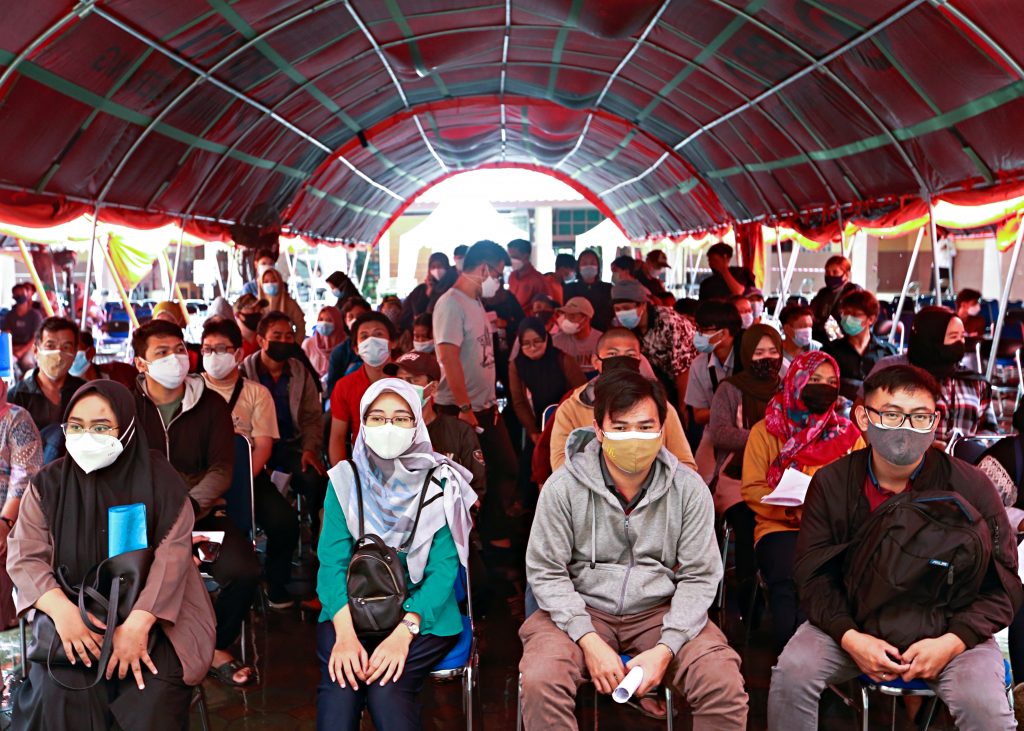Catholic Church leaders in Indonesia have expressed support for proposals to implement stricter lockdowns to combat the surging COVID-19 infections and deaths in the country.
“I completely agree,” said Archbishop Petrus Canisius Mandagi of Merauke (Papua). “This must be done for the good of the entire country,” he told AsiaNews on July 21.
“We fully recognize that the informal sector has been seriously affected,” said Archbishop Yustinus Harjosusanto of Samarinda (East Kalimantan.)
“But putting up with the [strict measures] one more week will be much wiser with more fruitful results for the good of all the people,” he said.
Bishop Yohanes Harun Yuwono of Tanjungkarang (Lampung Province, Sumatra) said he “strongly agrees” with the proposal to extend the lockdown.
“There is nothing more serious than simply following the rules and fully engaging with health protocols,” he said, adding that people should “stay home, except in essential matters, to protect their family and neighbors.”
Several other Catholic Church leaders have also expressed their support “for the good of the nation.”
The World Health Organization on Thursday urged Indonesia to implement a stricter and wider lockdown, days after the country’s president flagged the easing of restrictions.
Indonesia has become one of the epicenters of the global pandemic in recent weeks, with positive COVID-19 cases leaping fivefold in the past five weeks.
This week, daily deaths hit record highs over 1,400, among the highest tolls in the world.
In its latest situation report, the WHO said strict implementation of public health and social restrictions were crucial and called for additional “urgent action” to address sharp rises in infections in 13 of Indonesia’s 34 provinces.
“Indonesia is currently facing a very high transmission level, and it is indicative of the utmost importance of implementing stringent public health and social measures, especially movement restrictions, throughout the country,” it said.


Under Indonesia’s partial lockdown, social restrictions such as work-from-home and closed malls are limited to the islands of Java and Bali and small pockets in other parts of the country.
Large sectors of the economy deemed critical or essential are exempt from most, or some, of the lockdown measures.
On Tuesday, President Joko Widodo flagged an easing of restrictions from next week, citing official data showing a fall in infections in recent days, which epidemiologists say has been driven by a drop in testing from already low levels.
“If the trend of cases continues to decline, then on July 26, 2021, the government will gradually lift restrictions,” said Jokowi, as the president is known.
Indonesia’s daily positivity rate, the proportion of people tested who are infected, has averaged 30% over the past week even as cases numbers have fallen.
A level above 20% meant “very high” transmissibility, the WHO said.
All but one of Indonesia’s provinces have a positivity rate above 20%, with the outlier, Aceh, at 19%, the WHO said.
Employer groups, however, have warned of mass layoffs unless restrictions are relaxed next week.
Among other measures, they want all operational staff to be allowed to work at offices and factories in critical and essential industries — which include all export-orientated businesses, hotels and IT firms. – with a report from Reuters


